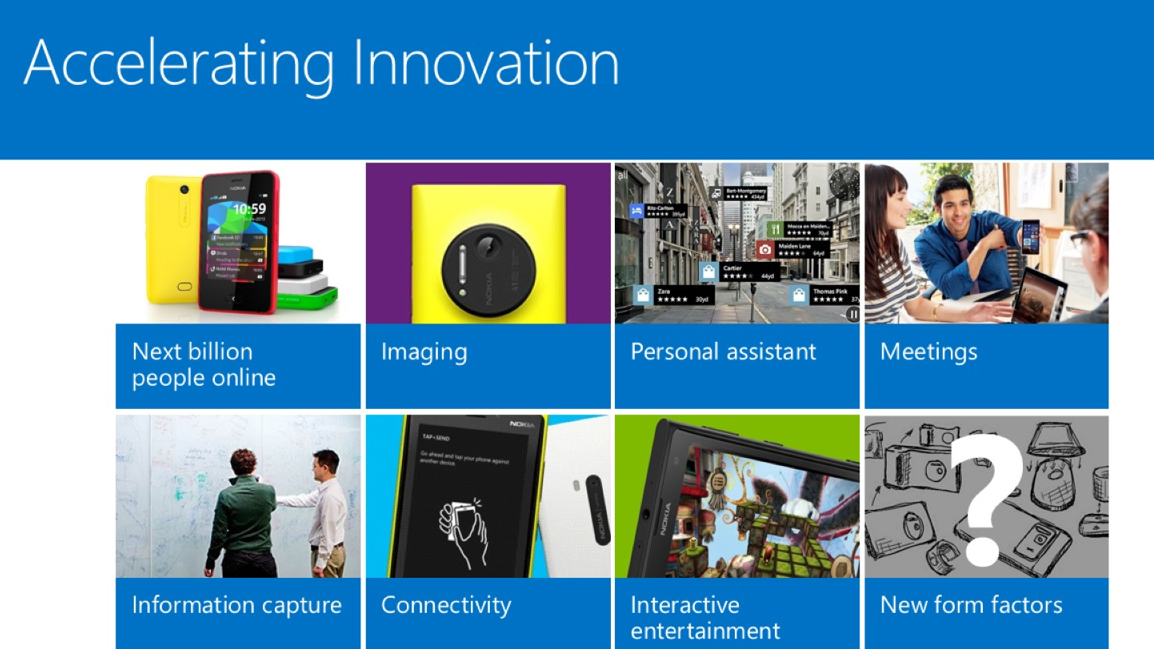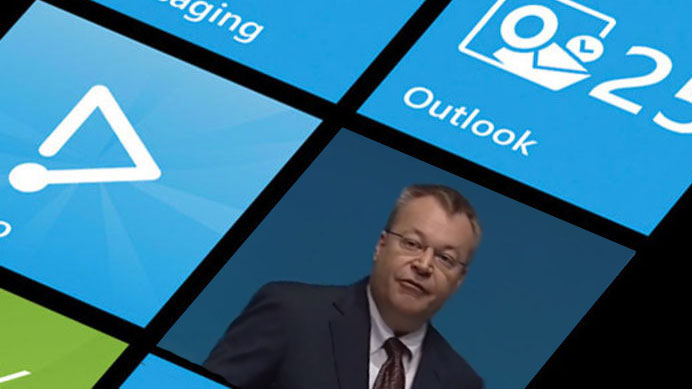Can Nokia teach Microsoft to be one company?
Buying Nokia makes Microsoft much stronger in devices

Microsoft and Nokia have been trying since January to find a better way of working together on Windows Phone.
That turned out to be Microsoft buying Nokia's handset business and bringing back Stephen Elop to head up not just the Windows Phone hardware team but Microsoft's whole devices business – which is a key part of the 'One Microsoft' reorganisation.
Although Nokia has negotiated an excellent deal, with a combination of cash up front, loans from Microsoft that it gets even if the deal falls through and ongoing licence fees for both its Here maps and the large number of patents it isn't selling to Microsoft, it's also giving Microsoft the skills it needs to make the reorganisation work – with few drawbacks.
The most obvious disadvantage that could have blocked the deal has already happened; Nokia's success in selling Windows Phone was discouraging other OEMs, interim Nokia CEO Risto Siilasmaa admitted in the press conference.
Microsoft still believes that making Windows Phone more successful with its own phones makes it more attractive to OEMs (and Steve Ballmer claims that "OEMs are more enthusiastic about Windows Pone today than they were yesterday", but it wants to be a successful hardware maker itself.
Nokia sells over 80% of all Windows Phones at the moment; that's better than the 50% of Windows tablets Microsoft wants to sell itself. And Microsoft gets technology for far more than phones: Terry Myerson has already teased us with the idea of combining the Lumia 1020 camera with the Kinect 2 sensor.
Is Elop the next man for Microsoft?
There's plenty of speculation that this is Microsoft buying its next CEO, but that's not what this deal is about. For one thing, Microsoft needs Elop to run the devices business if it's going to make a success of selling its own phones, tablets and the "new form factors" hinted at in the Microsoft presentation. For another, it's buying a lot more than one person.
Sign up to the TechRadar Pro newsletter to get all the top news, opinion, features and guidance your business needs to succeed!
Devices and services, as outgoing CEO Steve Ballmer has been saying for over a year now, are Microsoft's future, and that's a combination that Nokia is already good at. The Lumia handsets, both premium and budget, and the big-selling Asha phones are complemented by services from HERE maps, navigation tools, Nokia's extensive music service, dozens of utilities – including Nokia's own data-saving Xpress web browser and augmented reality tools.
Nokia has been running an app store for a lot longer than Microsoft and it has its own developer evangelism team, which has been at least as successful as Microsoft at bringing key apps to Windows Phone; Angry Birds, Words with Friends, Draw Something, Hipstamatic and other important apps have come to Nokia phones as exclusives months before other Windows Phone users got them.

When he ran the business division at Microsoft (which included Office), Elop was an early convert to the principle that grew into the devices and services mantra. Software plus services as Microsoft used to call it – apps that worked well on their own (like Outlook) but got better when you were online with access to extra services (like contact information from Linked In or Facebook). Back in 2009 at the Web 2.0 conference, he was bullish on the importance of the combination of devices, apps and cloud services.
"Some people say it will all be in the cloud; I think that is hogwash," he claimed (and the less-than-stellar sales of Chromebooks suggest he wasn't wrong). "How many people here have an iPhone? And how many of you are using the Facebook app on iPhone? Just as many. The device, the operating system, and the rich app – that's the Facebook app combined with the Facebook service - is a better experience."
Mary (Twitter, Google+, website) started her career at Future Publishing, saw the AOL meltdown first hand the first time around when she ran the AOL UK computing channel, and she's been a freelance tech writer for over a decade. She's used every version of Windows and Office released, and every smartphone too, but she's still looking for the perfect tablet. Yes, she really does have USB earrings.